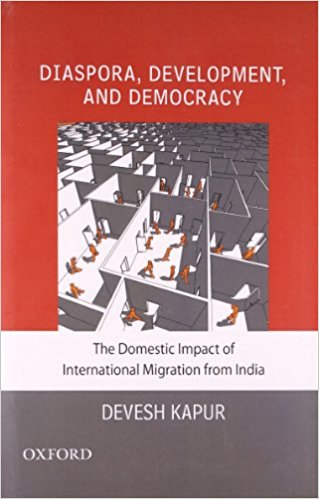International migration is not a new phenomenon for the globetrotting Indians who today constitute more than twenty-five millions living either permanently or temporarily in different countries around the world. While several studies have been conducted concerning the consequences of Indian emigration on the culture and economy of the host society and the socioeconomic impacts on India, there is hardly any systematic study on how this international migration affects the political economy of India’s development. Devesh Kapur’s book Diaspora, Development, and Democracy fills this gap by presenting a nuanced understanding of the phenomenon of international migration and its impact on India. The international labour migration, ‘the third and missing leg of globalization triad’ (p. 2), has produced mixed consequences for the country of origin and the country of destination. This book shows in what ways these consequences can be studied from the perspective of the country of origin and how international migration has affected the political economy of India.
Kapur has tried to answer, with substantial empirical evidences and historical analysis, several key questions such as: ‘How do diasporas shape national identity? What are the effects of long-distance nationalism? Do diasporas amplify or attenuate cleavages in the country of origin? Do diasporic networks tend to support more hard-line political parties in the country of origin or do they instead create conditions that provide a countervailing force to nationalism?’ (p. 14).

